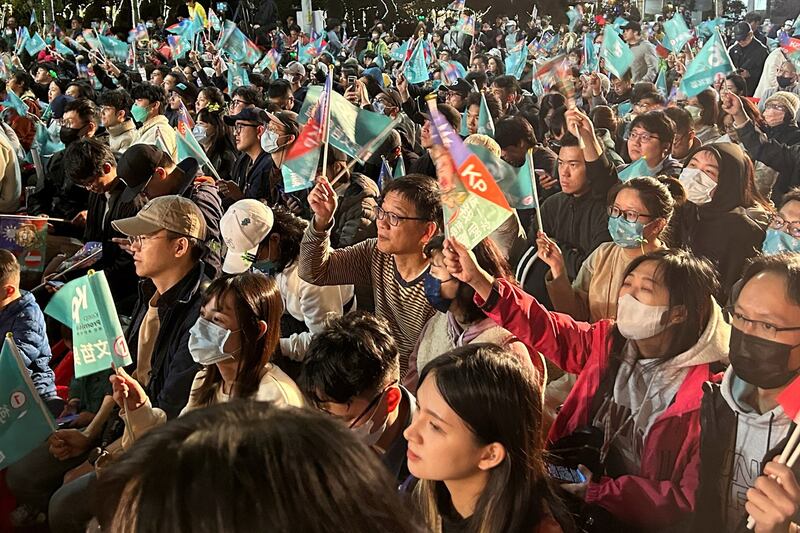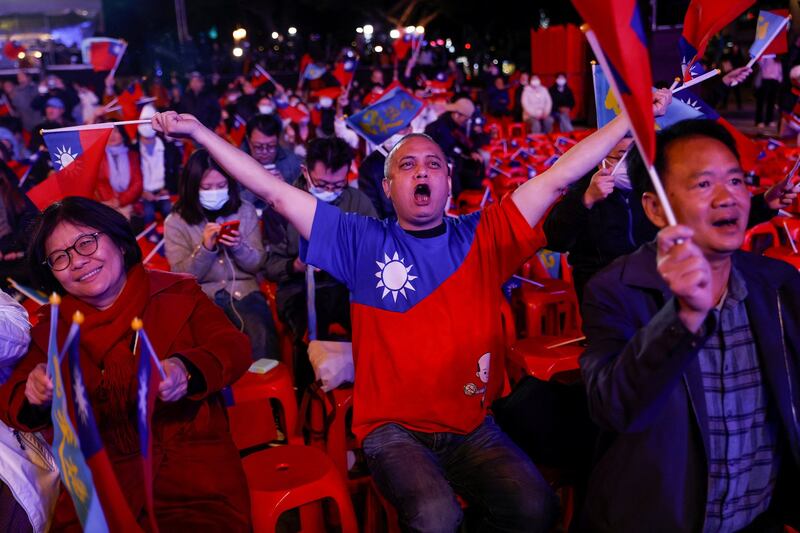Lai Ching-te's victory in Taiwan's presidential election with just 40.1% of the total vote represents a "clear mandate" for the incoming leader but sends a message that his government must get moving swiftly on pressing social issues, a spokesman for Lai said on Wednesday.
Soaring housing prices, stagnant wages and persistent inflation proved more influential at Saturday's election than tense cross-strait relations with mainland China, said Vincent Chao, a spokesman for Lai and the head of international affairs for the ruling Democratic People's Party.
Each of the three parties went to the election with different views on how to deal with Beijing, which has vowed to "reunite" the island with the mainland by force if needed, but Chao said "a strong consensus" on the need for defense deterrence emerged during the campaign.
"The dominating part of the election was really the myriad of social issues that we face here in Taiwan, ranging from high housing prices to salaries not keeping up with inflation [and] cost of living," Chao said at an online event hosted by the United States Institute of Peace.
“This was an election that wasn't just about cross-strait [ties],” he said.

Lai has served as vice president to incumbent President Tsai Ing-wen since 2020. He campaigned as a “steady, experienced pair of hands,” Chao noted, which means Taiwanese voters will now expect him to act quickly on social issues before the island’s local elections in 2026.
“There will be no honeymoon period for Lai Ching-te,” Chao said. “We’ve held all levers of government … for eight years’ time, and there are expectations that the DPP needs to be making more progress on this.”
A mandate to govern?
Lai won the presidency without securing an absolute majority, with his 40.1% of the total vote beating out Kuomintang candidate Hou Yu-ih's 33.5% and Taiwan People's Party candidate Ko Wen-je's 26.5%.
By contrast, Tsai, who was term-limited from running a third time, won the 2016 election with 56.1% and the 2020 election with 57.1%.
While the two opposition parties claimed 60% of the vote this time, a short-lived pre-election coalition between the pair broke down weeks before election day after Hou and Ko could not decide who would be the presidential and vice-presidential candidate on a joint ticket.
Speaking at the United States Institute of Peace event, Alexander Huang, the director of International affairs for Kuomintang, said the dramatic drop in votes for the DPP candidate this year showed the ruling party had a more limited mandate to govern alone now.
Huang noted the Kuomintang’s rival opposition party, the TPP, made inroads among younger voters who in the past might have voted for the DPP by pledging to create special corruption investigating bodies after a series of damaging government-procurement graft cases.
“The mandate to the DPP is a discounted mandate,” he said. “The low rate of the vote – 40%, despite being elected – can be explained by public outrage over these possible corruption scandals.”
Chao responded that in a three-way race it was always going to be hard for a candidate to win 50%, and said it was wrong to combine the 60% won by the two opposition parties, who did not run together.
“The same argument can be made that, for example, 65% of people did not support the KMT, or 70% of people did not support the TPP,” he said. “We received the most out of any political party or candidate.”
In any democracy, any victory at the ballot box “usually gives the president the mandate to move his agenda forward,” Chao said.
Parliamentary opposition
But whatever mandate Lai and his DPP has over the next four years, though, one thing is for certain: It won’t be just like the last eight.

The party that has ruled Taiwan for the last eight years with control of both the presidency and Legislative Yuan will have to learn to work with the Kuomintang and TPP after losing its majority in the 113-seat parliament.
The Kuomintang won 52 seats to the DPP’s 51 seats and the TPP’s 8 in simultaneous legislative elections on Saturday, giving the opposition parties a majority if they choose to vote together on legislative bills.
Chao acknowledged that meant the opposition has its own mandate, with Taiwan’s voters opting for split control of the government.
“They also want strong checks and balances,” Chao said. “They handed a mandate to the legislature, to the opposition there, to suggest they should play a more vigorous role in working with the government to bring different perspectives and ideas forward.”
At the very least, Huang said that he doubted the opposition parties would use their legislative power to oppose any bills proposed by Lai’s administration to buy munitions from the United States.
“There is a consensus among the KMT leadership that enhancing defense is the first and most important thing for Taiwan to ensure our security,” he said, “but I think the DPP should work very hard to make sure that there is no worries about corruption in those bills.”
